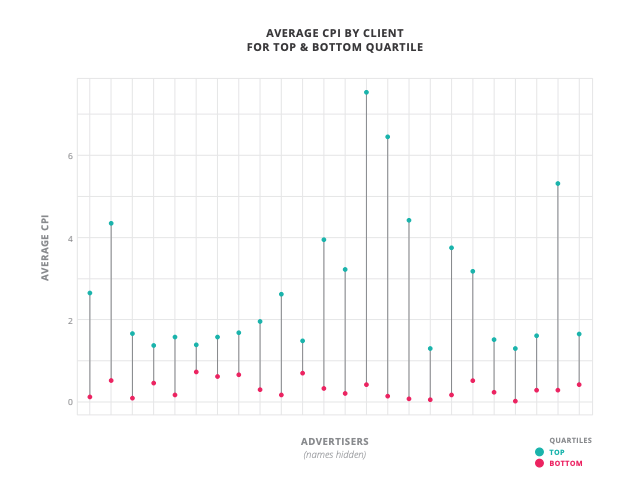Topics:
Reporting & PerformanceSubscribe now and get the latest podcast releases delivered straight to your inbox.
How important is creative in marketing and advertising?
Answers may vary based on
Based on a recent Nielsen Study, creative can be responsible for up to 47% of sales increases attributed to advertising, however, people have tended to neglect analytics related to digital creative, leaving us to rely on irrelevant response metrics like click-through rates.
Flashtalking has addressed this problem by creating a new, machine learning-based approach to evaluating the performance of yours, whether it be written, video, design, etc.
Using a multi-touch attribution engine to score the contribution of each impression, they applied an additional layer of data science to control for media and audience bias in the data.
This results in an understanding of the creative impact for each delivered ad, based on its ability to influence behavioral outcomes (tracked success events).
Over the last year, over 24 brands have used these approach to analyze over 60+ campaigns covering the Travel, Media, Telco, Gaming, Consumer Services, and Energy sectors (averaging 142M impressions per campaign).
A conversion, like in inbound marketing, was defined as either a purchase or an indication of intent to purchase.
Why Should You Care?
By assessing the results of these campaigns, Flashtalking uncovered that a few important things worth noting:
Creative Performance Varies - A LOT
On average, the top performing quartile of creative is 7X MORE IMPACTFUL than the worst performing quartile of creative. Even in the narrowest case, the top quartile creative was 80% more impactful than those in the bottom performance quartile.
Click-through Rates (CTR) Are Horrible Metrics
CTR and creative performance are NEGATIVELY correlated.
“Creatives in the top quartile had an average CTR that was less than half of those in the bottom (.007% vs. .017%),” the report found, adding, “As the chart shows, CTR for the top quartile was almost always lower. In cases where they did have a higher CTR, the difference was usually quite small---supporting the thesis that CTR and creative performance are negatively correlated.”

So, What Are Actually GOOD Creative Metrics?
The results paint a pretty convincing picture for marketers.
The significant variances in performance across creative indicate there’s a huge opportunity for marketers to improve how they measure and optimize their creative.
Good creative metrics achieve the following:
Reflect actual conversion impact:
Your metrics must consider the actual impact that your creative has on a user’s likelihood to convert. This means the metric cannot:
-
Rely solely on proxy metrics such as engagement rates. (a.k.a. vanity metrics like “likes” or “follows")
-
Allocate credit in a way that is arbitrary or inaccurate (e.g. only assigning credit to the click or first/last impression)
Are free from bias:
There are two major sources of bias in creative measurement and both must be addressed when analyzing creative performance.
-
Bias due to placement. For example, a video distributed in a relevant, targeted, and visible way is much more likely to have an impact than one served broadly at the bottom of a crowded, irrelevant page.
-
Bias due to the audience. Ads served to regular site visitors and/or brand advocates (and even those in the retargeting segment) are more likely to elicit a response than those served to users who are not fans of the brand, regardless of the quality of the creative.
Represent a significant sample size:
Many analytic techniques are great in theory but are not practical due to limitations on campaign size and time-frames for collecting data. A good metric needs to work with real-world (often small) sample sizes, while still allowing for granular comparisons of creative.
Finding the Right Creative Metric for You
Effective creative optimization may be one of the few untapped competitive advantages for marketers and advertisers. So what can (and should) marketers do?
The tools to accurately measure creative performance do exist, either as off-the-shelf solutions or as in-house solutions, but tracking the right metrics is only the first step.
Marketers will also need to implement processes that place creative performance optimization at the forefront, elevate its priority to receive the same level of attention, and analytic rigor as that of media and audience analysis.
How are you currently measuring your creative performance? How effective has it been? Let us know in IMPACT Elite!
Free Assessment:

